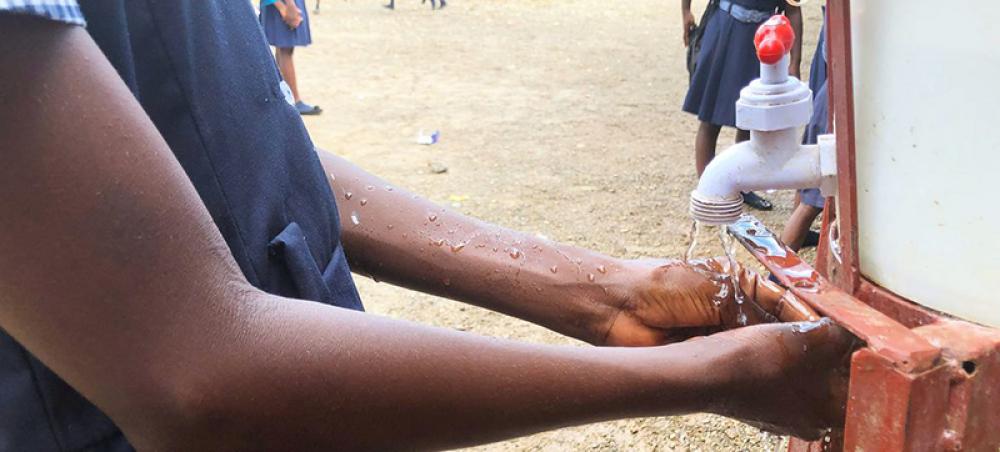Just Earth News | @justearthnews | 04 Oct 2022, 01:44 am Print
 Haiti Cholera
Haiti Cholera Image: UN News/Daniel Dickinson
New York: The UN is supporting efforts by the Haitian Government to contain an outbreak of cholera following the confirmation of a positive case and the identification of other suspected cases around the capital, Port-au-Prince. In a statement issued on Monday, the UN chief said it was essential for all stakeholders to "work together in this time of crisis".
The case was identified using the cholera surveillance mechanism, established by the Haitian authorities and supported by the United Nations.
It was confirmed as positive at the National Public Health Laboratory in Port-au-Prince on Sunday 2 October. Additional suspected cases are currently under investigation.
Emergency response
The UN is actively monitoring the situation and is working with national authorities to mount an emergency response to this potential outbreak, focused not only on limiting the spread of the disease, but also on telling families how to take immediate lifesaving action in their local communities.
Additional support will consist of expanded surveillance, increased water and sanitation provision, the opening of cholera treatment centres and the reinforcement of case management.
Specialized emergency response teams are ready to be deployed to support affected communities.
Stopping the spread
However, in the current environment of insecurity and lawlessness around the capital, it is imperative that these teams be guaranteed safe access to areas where cases have been confirmed or suspected, to help mitigate the risk of a large or disruptive outbreak, the UN Country Team said in a statement released on Sunday night via the Resident Coordinator’s office.
Preserve gains made
In his statement issued through his Spokesperson, UN Secretary-General António Guterres, said that there needed to be "immediate and unfettered access on the ground to facilitate the delivery of fuel for humanitarian purposes.  Fuel deliveries have been blocked at the port since mid-September, which has disrupted not only the daily life of the Haitian people, but also the ability and capacity of the United Nations and the international community to respond to a compounding crisis."
He appealed for all to work together, to ensure that the "gains made over the past 12 years in the fight against cholera are not eroded."
A major outbreak of the waterborne disease began in 2010, widely believed to have been imported by UN peacekeepers. Marking the tenth anniversary two years ago, Mr. Guterres said the UN deeply regretted "the lost of life and suffering caused".
Be vigilant
"The United Nations is calling on all Haitian citizens to remain vigilant and take proactive measures to prevent the spread of cases within the community", the statement concluded
Measures the UN is recommending all Haitians adopt to guard against the disease include boiling water for drinking and cooking, washing hands regularly with soap and safe/treated water (boiled or chlorinated) and protecting food from pests (rodents and insects).
Anyone who exhibits symptoms of acute watery diarrhea, the Country Team statement said, and vomiting, should seek immediate medical attention immediately and try to stay hydrated using oral rehydration salts which can be made at home by combining one litre of clean water, six teaspoons of sugar and ½ teaspoon of salt.
Infants should be given a minimum of half a litre of oral rehydration salts per day while children should receive one litre. Adults should consume three litres per day. 
The United Nations is committed to stand side by side with the Haitian people and Haitian authorities as they seek to contain this outbreak, the statement concluded.
- Coffee and tea: This everyday drink may help protect your brain from dementia
- Happy Chocolate Day! The sweet secret behind chocolate’s hidden benefits
- Cambridge study finds menopause affects memory, mood, and sleep
- Nipah horror returns: WHO confirms death of a woman in Bangladesh
- Falling birth rates blamed on COVID shots? New research says think again





-1763561110.jpg)
